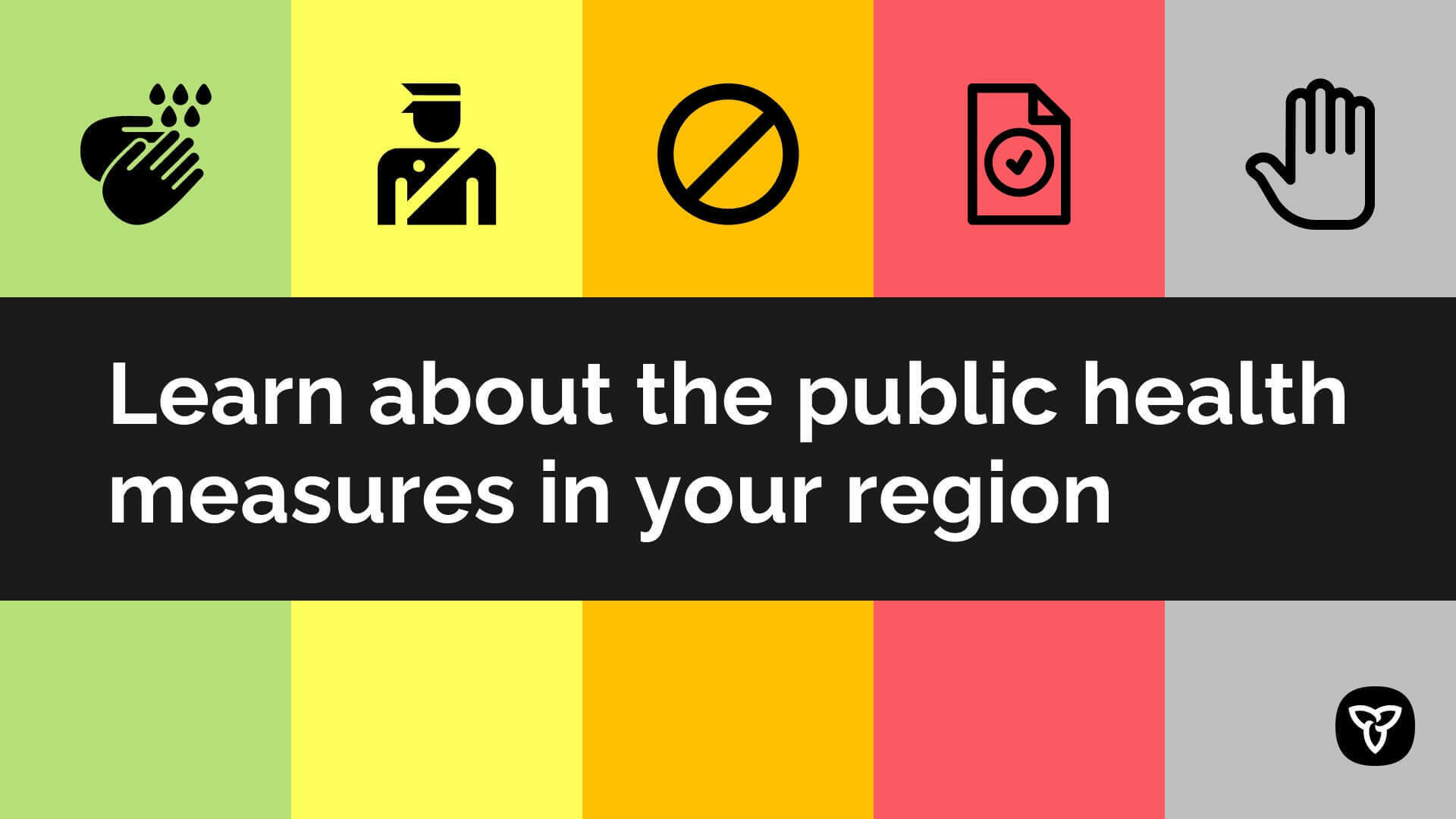
Nine Public Health Regions Moving to New Levels in the COVID-19 Response Framework
The Ontario government, in consultation with the Chief Medical Officer of Health, is moving nine public health regions to new levels in the Keeping Ontario Safe and Open Framework (the “Framework”). This includes activating an “emergency brake” in Thunder Bay District Health Unit and Simcoe-Muskoka District Health Unit to move the regions to Grey-Lockdown to immediately interrupt transmission and contain community spread. Decisions were made in consultation with the local medical officers of health and are based on the trends in public health indicators and local context and conditions.
“While we continue to see the number of cases and other public health indicators lowering in many regions across the province, the recent modelling shows us that we must be nimble and put in place additional measures to protect Ontarians and stop the spread of COVID-19,” said Christine Elliott, Deputy Premier and Minister of Health. “With COVID-19 variants continuing to spread in our communities, it is critically important that everyone continues strictly adhering to all public health and workplace safety measures to help contain the virus and maintain the progress we have made to date.”
Based on the latest data, the following public health regions will move from their current level in the Framework to the following levels effective Monday, March 1, 2021 at 12:01 a.m.:
Grey-Lockdown
Red-Control
- Niagara Region Public Health.
Orange-Restrict
- Chatham-Kent Public Health;
- Middlesex-London Health Unit; and
- Southwestern Public Health.
Yellow-Protect
- Haldimand-Norfolk Health Unit; and
- Huron Perth Public Health.
Green-Prevent
- Grey Bruce Health Unit.
Based on the latest assessment of data the “emergency brake” is being used to place Thunder Bay District Health Unit and Simcoe-Muskoka District Health Unit into Grey-Lockdown, helping to stop the spread of the virus and protect public health and health system capacity in the regions. This is due to a rapid worsening in key public health indicators, as well as a high presence of variants in the Simcoe-Muskoka District Health Unit that continue to increase – the highest in the province. As of February 23, 2021, there has been a total of 170 confirmed cases of a variant of concern in this region.
In Peel Public Health, Toronto Public Health, and North Bay Parry Sound District, the Shutdown measures and the Stay-at-Home order will continue to apply until at least Monday, March 8, 2021, with final decisions to be based on key public health indicators and consultation with the local medical officers of health. All other public health regions will remain at their current level. Please visit Ontario.ca/covidresponse for the full list of public health region classifications.
Based on the latest modelling data, the efforts of Ontarians in following public health measures and advice are working to decrease the number of new cases, deaths and hospitalizations across the province. However, with variants of concern continuing to spread, the number of patients requiring hospitalization and intensive care may rise once again if public health measures are not relaxed carefully and gradually. The actions of everyone over the coming weeks will be critical to maintaining the progress communities have made across the province to date.
“Quickly implementing stronger measures to interrupt transmission of COVID-19 is a key component of the government’s plan to safely and gradually return public health regions to the Framework,” said Dr. David Williams, Chief Medical Officer of Health. “Due to data and local context and conditions in the Simcoe-Muskoka and Thunder Bay Districts, it was necessary to tighten public health measures in these regions to ensure the health and safety of the region at large and stop the spread of the virus.”
The Chief Medical Officer of Health will continue to consult with public health and other experts, review data, and provide advice to the government on the appropriate and effective measures that are needed to protect the health of Ontarians.





